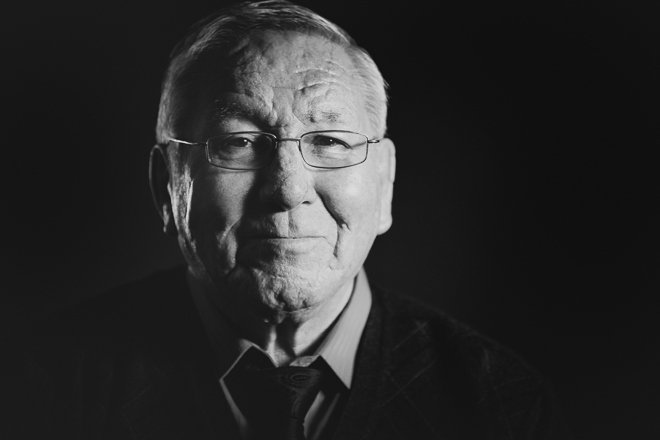The Healing Lodge
Every spring, UofGH students live their textbooks.
“We literally take the classroom to the field,” says Program Head, Psychology, and course instructor, Dr. David Danto.
This week, those enrolled in the field study in psychology course (PSYC 3600) are traveling to northern Ontario in order to gain a better understanding of the influences that have created disparities in mental health outcomes between Aboriginal and non-Aboriginal populations.
“Students meet community members, Elders, they visit the probation and parole offices, they hear great stories of strength and resilience. They learn the value of considering the broader picture.”
Remi Chakasim, an addictions counselor at the Sagashtawao Healing Lodge in Moosonee, is one of those Elders.

On the banks of the Moose River in northern Ontario is a small healing lodge. It’s where people from nearby communities can go for help in overcoming alcohol and drug addictions. And it’s where Remi Chakasim, now an Elder, works as an addictions counselor.
He’s lived in Moosonee, home to the Sagashtawao Healing Lodge, for nearly 40 years. He says he’s seen a lot of changes, and he’s got the stories to prove it.
“We used dog teams, snowshoes and canoes,” he says with a laugh.
He’s also seen many changes in mental health treatment.
“It used to be just about dispatching medication. That’s what mental health was up north.”
But it’s different now, he says, happily. When the lodge first opened in 1993, mental health treatment began to recognize another change he describes within the community – and one that he positions at the centre of the addictions issues.
He says he’s noticed a change in the collective spirituality of the community, be it loss of language or of culture; as though people have lost their sense of self. “They’ve lost their spirit,” he says. “I find people in my community are missing the spiritual teaching of kindness.”
He describes what he calls a spiritual death within the community: “When I was 8 years old, a nun asked me to do a good deed. I didn’t know what a good deed was. She said, Do something good for another person. I ran home to help my mother, and I knew that what I had done was right.”
“I did that every day. And it made me feel good, even though I didn’t understand why at the time. But when we were taken to residential school, all the things we were taught about sharing, visiting, helping, communicating, celebrating – these were the things that were taken away from us when we were separated from our families. It was something of a death. Killing the spirit of the people.”
“But it’s hard to explain.”
Dr. David Danto, program head of psychology, has led field courses for the past several years to northern Ontario: “The healing lodge is significant as it integrates traditional healing with western substance abuse treatment. In my view, part of the future direction of mental health among Aboriginal communities in Canada must be dependent on an understanding of tradition, culture and politics; this, integrated with appropriate research and psychological knowledge. I think the healing lodge does just that.”
He adds: “Also of significance is that the healers and counselors are part of the community. Those who are providing the treatment are intimately aware of the challenges given the cultural and geographical context.”
Mr. Chakasim certainly is. “I was addicted to alcohol for 35 years. Why do I work now at the healing lodge? Because I know everything about alcohol.”
“I have something to offer.”
And this, he suggests, is at the root of healing. His, and his community’s. In-line with the most recent research on happiness, caring for others, says Mr. Chakasim, is an important part of feeling positive.
“Treat others with kindness; and we’ll be united once again.”


